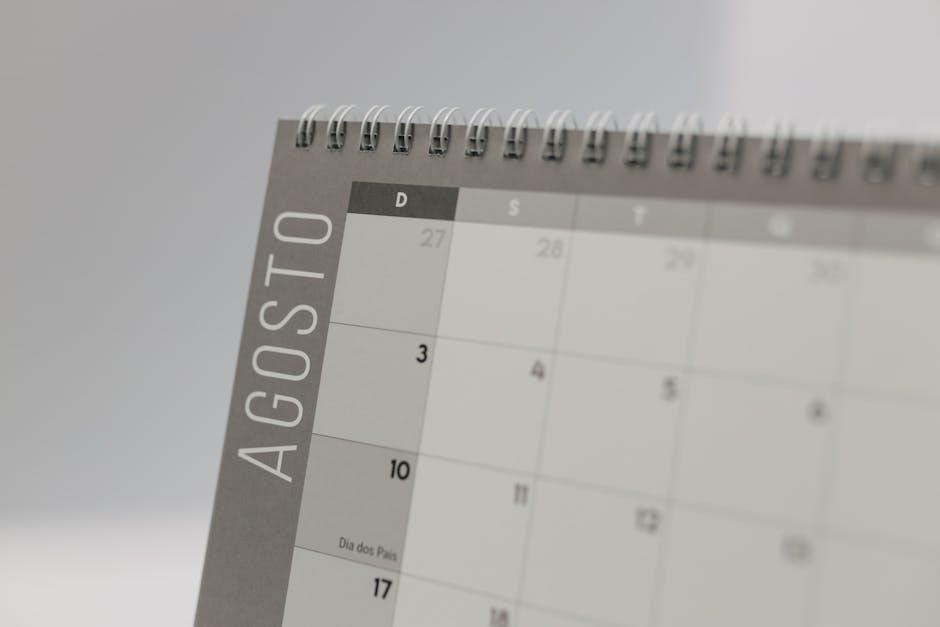Bringing home an 8-week-old puppy is an exciting milestone, but it requires a structured approach to ensure proper development. A well-planned puppy schedule helps establish routines for feeding, potty training, exercise, and sleep, fostering a balanced and healthy lifestyle. This guide provides a comprehensive framework to support your puppy’s growth, making the transition to parenthood smoother and more enjoyable for both you and your new furry friend.
When to Start the Schedule
It’s essential to begin the 8-week-old puppy schedule as soon as you bring your new furry friend home. Establishing a routine from day one helps your puppy adjust to their new environment and prevents unwanted habits. Puppies thrive on consistency, and an early start ensures they learn potty training, feeding times, and sleep patterns effectively. Starting the schedule at 8 weeks also aligns with their natural development stage, where they begin to explore and learn rapidly. By implementing the schedule immediately, you set a strong foundation for their growth and make the training process smoother. Consistency from the beginning helps your puppy feel secure and understand expectations, leading to a well-adjusted and obedient companion. Early routine implementation also prevents behavioral issues and makes the transition to more independence easier as they grow.
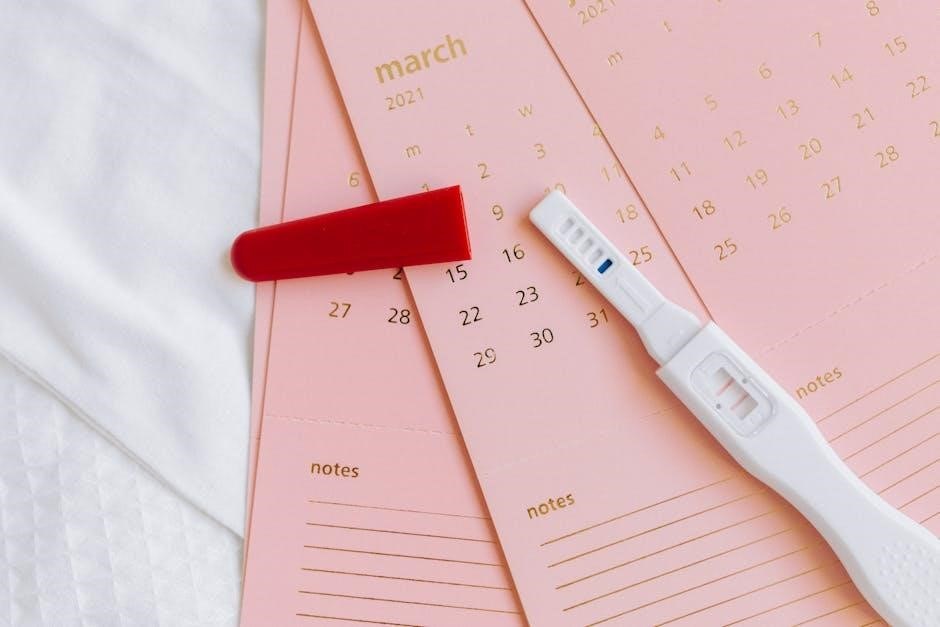
Benefits of a Structured Puppy Schedule
A structured puppy schedule offers numerous benefits for both you and your new furry companion. It provides clarity and consistency, helping your puppy understand expectations and develop good habits from an early age. A well-planned routine ensures proper potty training, feeding times, and adequate exercise, which are crucial for their physical and mental development. By sticking to a schedule, you can prevent unwanted behaviors like accidents in the house or excessive chewing. Additionally, a structured routine helps reduce stress and anxiety for both the puppy and the owner, creating a more harmonious home environment. It also promotes better sleep patterns, as puppies learn when it’s time to rest and play. Overall, a structured schedule lays the groundwork for a well-adjusted, obedient, and happy dog, making the puppy-raising experience more enjoyable and rewarding for everyone involved.
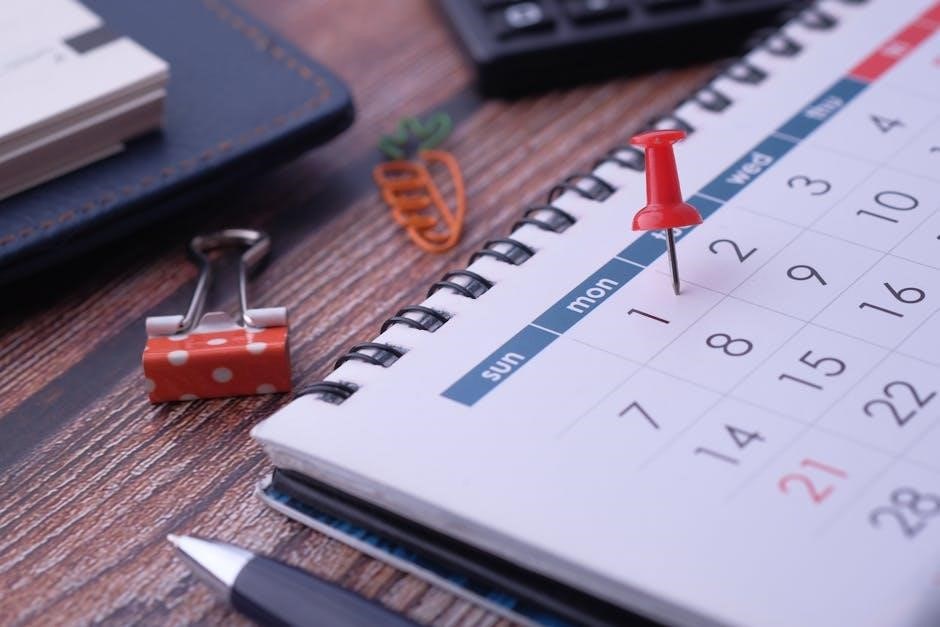
Why Your Puppy Needs the 8-Week-Old Puppy Schedule
Your puppy thrives on routine, and an 8-week-old schedule ensures adaptation to their new environment, promoting healthy habits, and strengthening the bond between you and your furry friend.
Importance of Consistency and Routine
Consistency and routine are vital for an 8-week-old puppy’s development, as they provide a sense of security and help establish trust. A structured schedule ensures your puppy can predict and understand their environment, reducing anxiety and frustration. By maintaining a daily rhythm for feeding, potty breaks, exercise, and sleep, you create a foundation for good behavior and healthy habits. Routine also aids in training, as puppies thrive on repetition and clear boundaries. Over time, consistency helps your puppy transition smoothly into adulthood, making them a well-adjusted and confident companion. Sticking to a schedule may seem challenging, but it sets your puppy up for long-term success and strengthens your bond.
How a Schedule Aids in Training and Development
A structured schedule plays a pivotal role in the training and development of an 8-week-old puppy. By incorporating consistent routines for feeding, potty breaks, exercise, and sleep, you create an environment where your puppy can learn and grow effectively. Schedules help puppies develop essential life skills, such as bladder control and basic obedience, while also promoting mental and physical stimulation. Regular training sessions within the schedule ensure your puppy can focus and absorb new information, leading to faster progress. Additionally, a structured routine aids in socialization, helping your puppy interact confidently with people, other animals, and new environments. Over time, this consistent approach fosters a well-adjusted, well-behaved adult dog, making the effort worthwhile for both you and your furry companion.
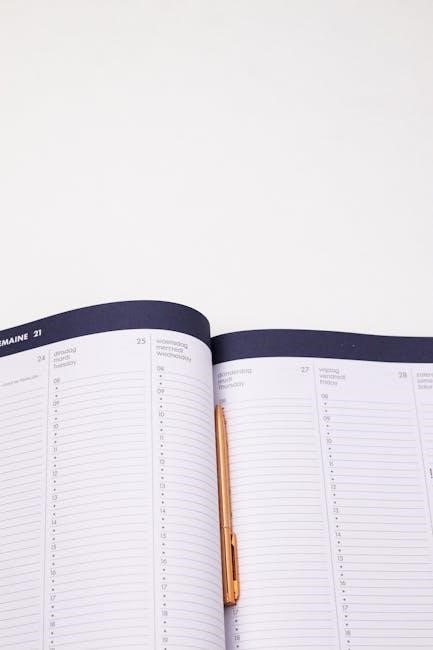
The PEES Structure: A Comprehensive Guide
The PEES Structure—Potty, Eat, Exercise, Sleep—offers a balanced approach to raising an 8-week-old puppy. This framework ensures your puppy’s daily needs are met consistently, promoting healthy development and a strong routine.
What is the PEES Structure?
The PEES Structure is a straightforward framework designed to meet the essential needs of an 8-week-old puppy. It stands for Potty, Eat, Exercise, and Sleep, ensuring a balanced routine that supports healthy development. By organizing your puppy’s day around these four key activities, you create a structured environment that aids in training and overall well-being. This approach helps puppies thrive by providing consistency, which is crucial during their early stages of growth. Each component of PEES plays a vital role: Potty for toilet training, Eat for proper nutrition, Exercise for physical and mental stimulation, and Sleep for rest and recovery. Together, these elements form a comprehensive system that makes raising a puppy more manageable and effective.
Potty (P): Tips for Effective Toilet Training
Effective toilet training is a cornerstone of the PEES Structure, ensuring your puppy learns to go potty in the right places. Start by taking your puppy outside immediately after meals, naps, and playtime, as these are key times when they need to go. Consistency is key—use a designated potty area and praise your puppy with positive reinforcement, like treats or praise, when they succeed. Watch for signs your puppy needs to go, such as sniffing or circling. If accidents happen indoors, clean the area thoroughly with a pet-safe cleaner to remove tempting scents. Avoid punishment, as it can create anxiety and hinder progress. For young puppies, take them out every 30-60 minutes or after short periods of activity. Over time, this routine will help your puppy learn bladder control and good habits, making potty training a smoother process for both of you.
Eat (E): Feeding Schedule and Nutrition
A well-structured feeding schedule is essential for your 8-week-old puppy’s growth and development. Typically, puppies at this age require 3-4 balanced meals per day, spaced evenly to prevent overeating and support digestion. High-quality puppy food, rich in protein and nutrients, is crucial to meet their energy needs and promote healthy growth. Portion sizes should be tailored to your puppy’s breed, size, and activity level to avoid obesity. Feeding your puppy after potty breaks can also help reinforce good toilet training habits, as they learn to associate meals with going outside. Always consult your vet to ensure the food meets your puppy’s specific needs, and avoid overfeeding between meals to maintain a consistent routine. A structured feeding schedule not only supports physical health but also contributes to a calm and predictable daily rhythm for your puppy.
Exercise (S): Physical and Mental Stimulation
Exercise is a critical component of your 8-week-old puppy’s daily routine, ensuring physical health and mental well-being. At this age, puppies require short, gentle play sessions to avoid overexertion, as their energy levels and stamina are still developing. Activities like short walks, playtime with soft toys, and interactive games are ideal. Socialization is also vital, so introducing your puppy to new environments and people during these sessions is beneficial. Supervised play helps prevent accidents and teaches your puppy boundaries. Mental stimulation, such as introducing simple commands or puzzle toys, keeps their mind active and prevents boredom. Always tailor exercise to your puppy’s energy levels and breed-specific needs, ensuring they have adequate rest periods to recover. A balanced mix of physical activity and mental engagement supports overall development and sets the foundation for a well-adjusted adult dog.
Sleep (S): Establishing a Healthy Sleep Routine

At 8 weeks old, puppies require ample sleep to support their rapid growth and development. Establishing a consistent sleep routine is essential for their physical and mental well-being. Crate training can help create a safe, cozy space for your puppy to rest, reducing anxiety and preventing unwanted behaviors. A typical puppy sleeps 18-20 hours a day, with shorter naps during daylight and longer stretches at night. Nighttime care involves placing your puppy in their crate with soft bedding, ensuring they feel secure. Consistency is key; sticking to a schedule helps your puppy learn to self-soothe and adapt to a healthy sleep pattern. Over time, this routine will promote better behavior, energy levels, and overall happiness, laying the groundwork for a well-rested and well-adjusted adult dog.
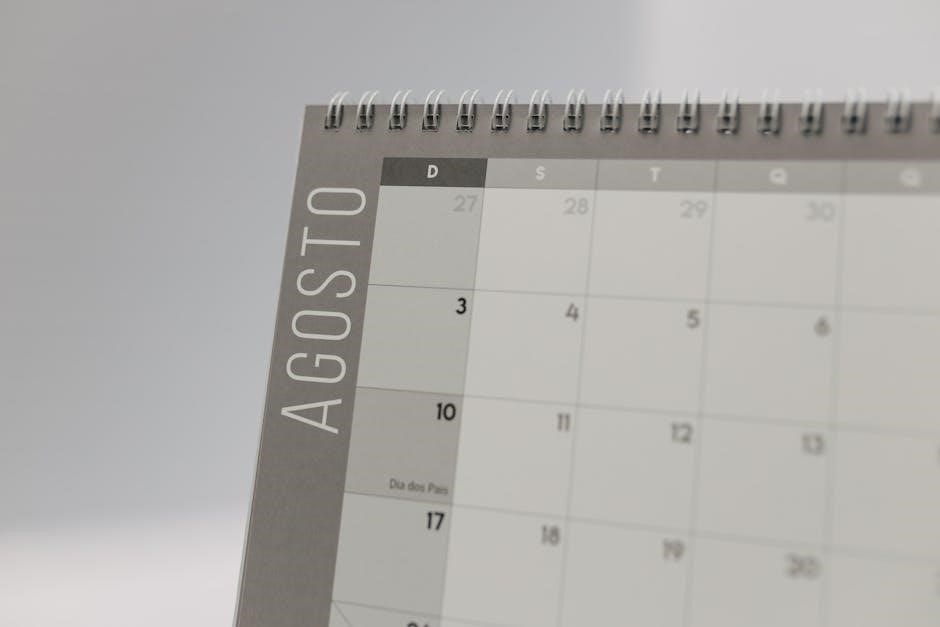
A More Detailed Walk-Through of the 8-Week-Old Puppy Schedule
This section outlines a detailed daily routine for an 8-week-old puppy, covering feeding times, potty breaks, play sessions, and rest periods to ensure balanced development and ease training.
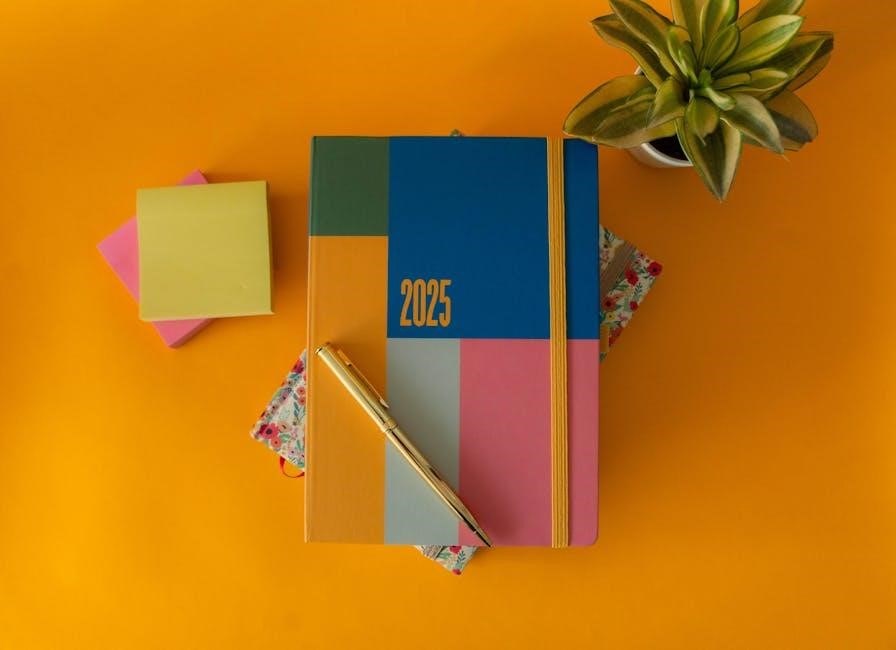
Morning Routine: Wake-Up to Breakfast
The morning routine begins with waking your puppy gently. Start by taking them outside to the designated potty area immediately after waking up. Consistency is key, so use a specific command like “go potty” to help them associate the command with the action. Once they’ve done their business, reward them with praise or a treat to reinforce good behavior. After potty time, return inside for breakfast. Feed your puppy a nutrient-rich, age-appropriate meal to fuel their day. Ensure fresh water is always available. Following breakfast, engage in a short play session to stimulate their mind and body. This could include light play with toys or a short walk. End the morning routine with a brief period of calm before moving on to the next activity.
Midday Routine: Playtime and Naptime
The midday routine focuses on balancing play and rest to support your puppy’s growth and energy levels. Start with an engaging play session, such as interactive toys or gentle tug-of-war, to mentally and physically stimulate your puppy. Keep playtime moderate in intensity to avoid overwhelming them. After play, offer a light snack or refresh their water to keep them hydrated. Following play, guide your puppy to their crate or a quiet area for naptime. Crate training helps with potty training and provides a safe space for relaxation. Ensure the environment is calm and free from distractions to promote quality rest. A midday nap typically lasts 1-2 hours, depending on your puppy’s needs. This routine helps recharge their energy for afternoon activities while maintaining a structured schedule.
Afternoon Routine: Training and Outdoor Activities
The afternoon routine is a great opportunity to focus on training and outdoor activities, helping your puppy develop social skills and physical fitness. Start with a short potty break, then engage in basic obedience training, such as “sit” or “stay,” using positive reinforcement like treats and praise. Outdoor time is essential for exploration and exercise, so take your puppy for a short walk or playtime in a safe, fenced area. Keep walks brief to prevent overwhelming your puppy. Interactive toys and gentle fetch can stimulate their mind and body. After play, return home for a crate rest period to help with potty training and prevent overexertion. This structured approach ensures your puppy receives the mental and physical stimulation they need while maintaining consistency in their schedule.
Evening Routine: Dinner and Relaxation
The evening routine focuses on winding down and preparing your puppy for a restful night. Start with dinner, ensuring your puppy eats a nutritious meal according to their feeding schedule. After dinner, take them outside for a potty break to prevent accidents indoors. Engage in calm play or gentle interaction to help your puppy relax without overstimulating them. Avoid intense exercises or playtime close to bedtime, as this can interfere with sleep. Gradually transition to a quiet environment, perhaps with soothing music or dimmed lights, to signal it’s time to wind down. Crate training can be helpful here, providing a safe space for your puppy to settle. Consistency in this routine aids in potty training and helps your puppy learn to self-soothe, ensuring a smooth transition to bedtime.
Night Routine: Bedtime and Overnight Care
Establishing a consistent night routine is crucial for your puppy’s sleep and overall development. Begin by sticking to a set bedtime, ideally around 9 PM, to signal the end of the day. After the evening potty break and relaxation, guide your puppy to their crate or designated sleeping area. Crate training is highly recommended at this stage, as it helps with potty training and provides a safe, cozy space for your puppy to rest. During the night, expect to take your puppy outside for a quick potty break, especially after meals or naps, to prevent accidents. Keep these trips calm and brief to avoid overstimulation. Monitor your puppy closely, as they may still need guidance and reassurance. A consistent night routine helps your puppy learn to self-soothe and reduces separation anxiety. Over time, as your puppy matures, they will require fewer nighttime interventions, but for now, patience and consistency are key to a smooth transition into a restful night’s sleep.
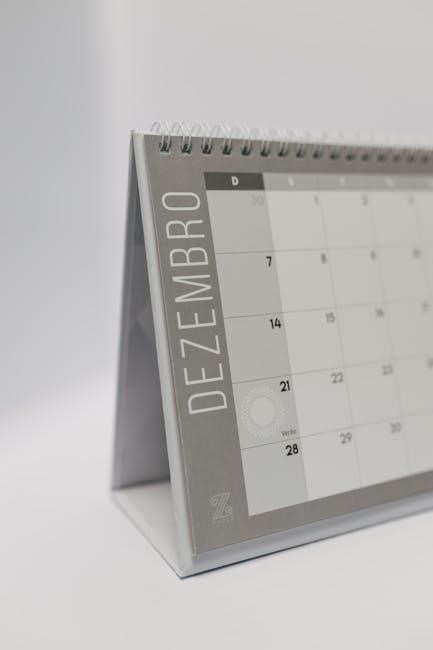
Additional Tips for Puppy Parents
Consistency, customization, and monitoring progress are key. Be patient, as every puppy adapts differently. Adjust the schedule to suit your lifestyle while ensuring your puppy’s needs are met.
How to Customize the Schedule for Your Lifestyle

Customizing the 8-week-old puppy schedule to fit your lifestyle is crucial for long-term success. Start by assessing your daily routine, including work hours, family activities, and personal commitments. Adjust feeding times to align with your breakfast and dinner schedule, ensuring consistency. Potty breaks can be adapted based on your availability, but maintain regular intervals to avoid accidents. Play and exercise sessions can be tailored to your energy levels and the puppy’s needs, incorporating activities like walks, playtime, or interactive toys. If you have a busy schedule, consider crate training or hiring a trusted sitter to maintain routine. Flexibility is key—life can be unpredictable, so slight adjustments won’t harm your puppy. Monitor your puppy’s responses and adjust accordingly. Remember, the goal is to create a balanced, enjoyable routine for both you and your puppy, fostering a strong bond and healthy development.
Common Challenges and Solutions
Raising an 8-week-old puppy often comes with challenges, but understanding how to address them is key to success. One common issue is potty training accidents, which can be minimized by consistent supervision and regular outdoor breaks. Another challenge is managing your puppy’s boundless energy, which can lead to destructive behavior. Solve this by incorporating structured playtime and mental stimulation. Sticking to the schedule can also be difficult, especially with a busy lifestyle. To overcome this, adapt the schedule to fit your routine while maintaining key elements like feeding and potty times. Additionally, separation anxiety may arise when leaving your puppy alone. Crate training and gradual separation can help ease this stress. Remember, every puppy is unique, and patience is essential. By addressing these challenges proactively, you can create a harmonious and thriving environment for your growing pup.
Signs of a Well-Adjusted Puppy
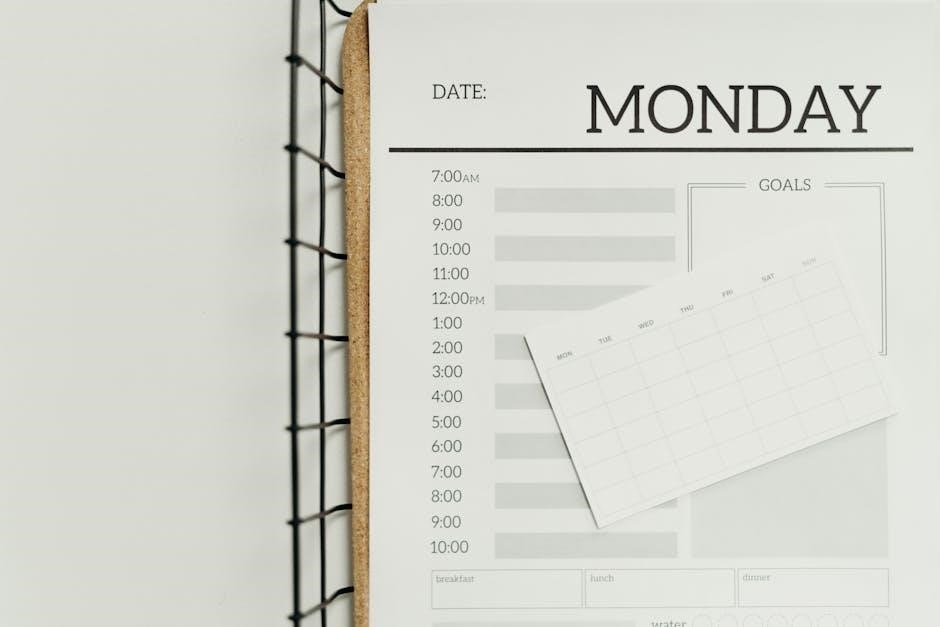
A well-adjusted 8-week-old puppy exhibits confidence, curiosity, and calmness in new environments. They show enthusiasm during playtime and quickly settle during rest periods, indicating good emotional regulation. A puppy that follows a schedule consistently for potty training, feeding, and sleep is a positive sign of adjustment. They should also display trust in their owners, approaching them readily for interaction or comfort. Physical health, such as maintaining a healthy weight and energetic play, is another indicator. A well-adjusted puppy is receptive to training and shows interest in social interactions with people and other pets. These signs suggest that your puppy is thriving and adapting well to their new home, making the transition smoother for both the puppy and the family.
By following the 8-week-old puppy schedule, you’ll set your puppy up for long-term success. Consistency and patience are key. Download the printable PDF to maintain structure and track progress effectively.
Final Thoughts on the 8-Week Puppy Schedule
Implementing an 8-week-old puppy schedule is a game-changer for new puppy parents. It provides structure, promoting healthy habits and emotional stability for your pup. Consistency in potty training, feeding, and exercise fosters trust and reduces behavioral issues. While the schedule is detailed, it’s flexible, allowing you to adapt it to your lifestyle. Remember, patience and positivity are key—celebrate small victories and stay committed. Monitoring your puppy’s progress and adjusting the routine as needed ensures their needs are met. Don’t hesitate to seek professional guidance if challenges arise. With time and effort, your puppy will thrive, growing into a well-adjusted, loyal companion. Embrace this journey and enjoy the incredible bond you’re building with your new furry friend!
Downloading the Printable Puppy Schedule PDF
Downloading a printable puppy schedule PDF is an excellent way to stay organized and consistent with your 8-week-old puppy’s daily routine. This convenient resource outlines feeding times, potty breaks, exercise sessions, and sleep schedules in a clear, hour-by-hour format. Having a physical copy allows you to track your puppy’s progress and make adjustments as needed. The PDF is designed to be user-friendly, ensuring you can easily follow the structure and maintain a balanced routine. By printing and placing it on your fridge or in a visible spot, you’ll have a constant reminder of your puppy’s needs. This tool is especially helpful for first-time puppy parents, providing a roadmap for raising a happy, healthy, and well-adjusted pup. Download the PDF today and take the first step toward creating a structured, loving environment for your new furry friend.
